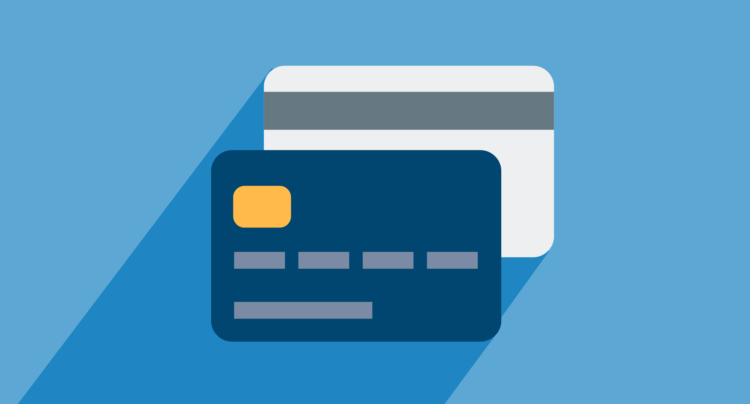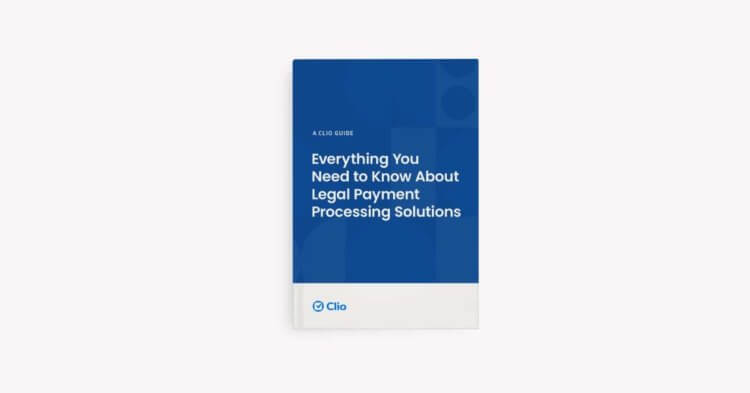The benefits of payment processing solutions for law firms are endless, and in some cases, even a dealbreaker for some consumers—with 40% saying they wouldn’t hire a lawyer that didn’t take credit or debit cards. Clients want to pay in ways that are convenient to them, and lawyers that offer those payment methods will have an edge over the competition.
Whether you’re new to legal payment processing solutions, or looking to take your payment offerings to the next level, our list of resources will help you every step of the way.
Getting started with payments for lawyers
Looking to dive into the world of legal payment processing? When you first start off, the number of specialized terms (ACH, processing rates, card networks) can be daunting, but you’ll soon find that it’s actually more intuitive than you think. Learning legal payment processing is easy when you already know and pay with these methods in your everyday life for groceries, gas, and more.
Level up your legal payment services
You have a lot of choice when it comes to payment processing providers, including generic solutions like Paypal and Square—but those vendors are not built specifically for law firms nor meet the requirements to be compliant with trust accounting rules. Choosing and understanding the benefits of a legal specific payment processor will help you be more efficient with your billing process and save time while eliminating the risk of inadvertently breaking IOLTA rules.
Do more with your legal payment processor
Is your current tool meeting your business needs? Having payment processing be part of your practice management system where you are already managing your billing, matters, contacts and having it all sync to your account ledger eliminates the need for manual entry and accidental duplication. Save time, get clear insights from unified reporting, and manage your firm from one single platform.
Lawyer Payment FAQs
What is the benefit of online payments for lawyers?
Online payments help law firms offer a better, more convenient payment experience with added flexibility. According to Clio’s 2021 Legal Trends Report, growing firms are 37% more likely to use online payments. By making it easy for clients to pay through multiple payment methods, law firms can reduce friction throughout the process and get paid faster.
How do lawyers get paid?
Lawyers get paid through fixed fees, an hourly rate, a retainer fee, or a contingency fee. Fixed fees are most common, lawyers will often charge fixed fees for routine services such as a real estate closing, or drafting up a will. Hourly rates are when lawyers charge you for their time by the hour. A retainer fee is when you employ a lawyer on an ongoing basis and they accept payment based on a certain time period for their services, usually monthly. Contingency fees are when lawyer fees are contingent upon winning a case. If the lawyer loses the case, they will not get a fee. But if they win a case, they will take a percentage of the money that is rewarded to you.
What is legal trust accounting?
Legal trust accounting is the need to keep separate track of client funds given in trust, away from law firm operating funds. It’s necessary for every lawyer to have a trust account to hold client funds (such as court fees, advanced costs, or settlement funds) otherwise they may be at risk of losing their licenses.
How do I maintain trust accounting compliance?
Trust accounts typically fall under IOLTA, IOLA, or Attorney Trust. In order to maintain trust account compliance, firms need to maintain accurate records showing the flow of funds in these types of accounts to ensure client funds are being handled properly. A few best practices are to keep this trust account fund and your matter fund completely separated, ensure credit card payments are deposited correctly and fees aren’t debited or taken from trust account, and never move unearned funds from your trust account to an operating account. Depending on your jurisdiction, you may also be required to have a trust account with an approved financial institution. It’s important to check these requirements before you set up an account. It’s also important to have a legal payment processor that has safeguards in place to keep you trust accounting compliant and ensure your funds are protected from potential third party debiting (such as fees).
What processing fees come with legal payments?
Depending on the legal payment processor, you may need to pay an exorbitant amount of additional fees. For certain payment processors, you could be charged card processing rates as high as 3.5% with additional interchange plus card network fees on top. Clio has one simple, flat rate per transaction with no hidden fees, ever.
Can law firms add surcharges for credit cards?
Surcharges—when a firm passes on the credit card processing fees to a client—are actually illegal in some states. Even in the states that are legal, there are strict rules around surcharging. For example, you have to notify both the processor and the client, and you cannot add a surcharge for more than your processing fee. If you choose to add surcharges for credit card payments, it’s important to do your research.
Payments Software for Lawyers Reviews
Hear what other lawyers have to say about Clio Payments.
Make it easy to pay — and get paid — with Clio Manage
Clio’s all-in-one, practice management system makes it easy for your clients to pay online using a credit card, debit card, or eCheck without the need for a third-party payment processor.
Payments are automatically deposited directly into your trust or operating accounting and tracked in real-time, so you and your integrated accounting platform are always up-to-date.









